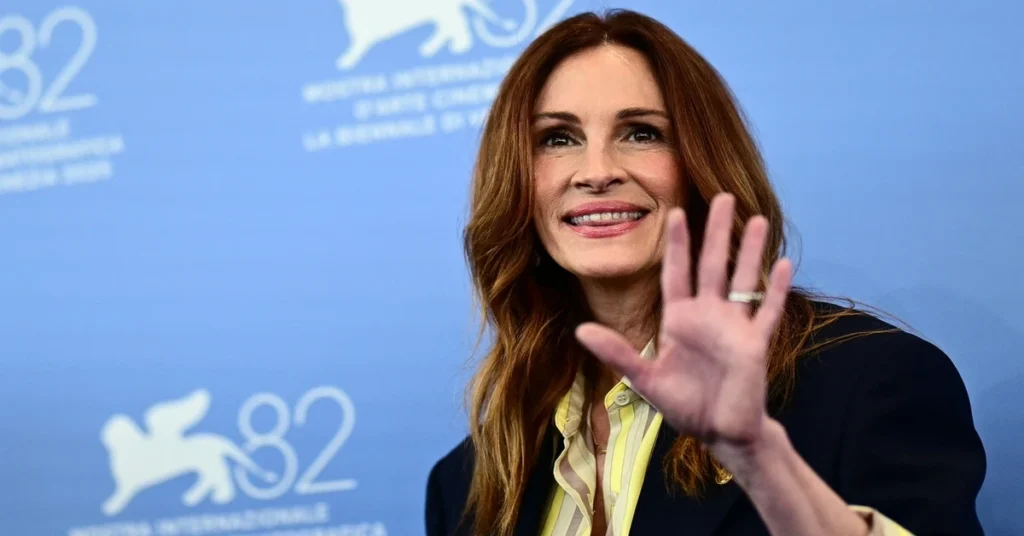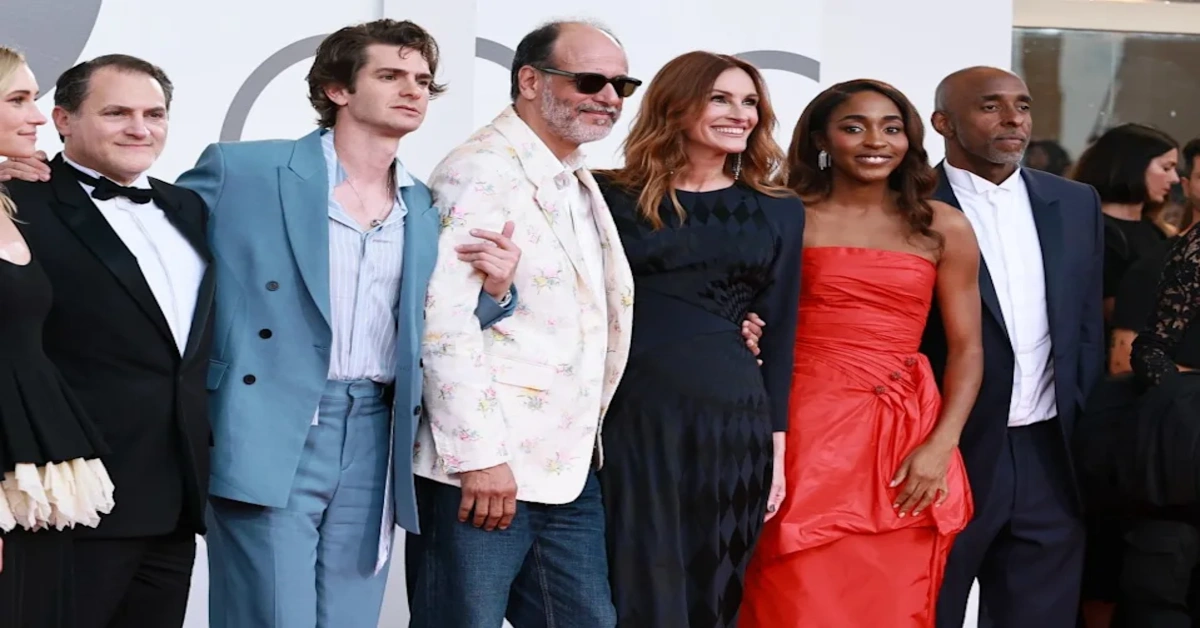Julia Roberts returned to the festival spotlight with After the Hunt, making her long-awaited Venice Film Festival debut on August 29, 2025. The film — a psychosexual drama directed by Luca Guadagnino and set in the fraught world of higher education — landed at the 82nd edition of the festival out of competition, instantly becoming one of the most talked-about screenings of the event.
A Red Carpet Debut
Roberts walked the Venice red carpet in a striking custom Atelier Versace gown, marking what many outlets described as a glittering festival debut after a long and celebrated career. Photographers and festivalgoers greeted the cast and director with palpable excitement, and audience reaction in the Lido was intense: reports say the screening prompted a lengthy, emotional standing ovation that left Roberts visibly moved.
The film: After The Hunt
After the Hunt centers on a beloved Yale philosophy professor whose life is unsettled when a star student levels an accusation against a colleague and secrets from the protagonist’s past surface. Guadagnino frames the story as an exploration of denial, privilege and moral ambiguity within an elite campus environment, staging scenes designed to provoke discussion rather than provide tidy answers. The setting and subject matter intentionally place the film at the crossroads of art-house provocation and contemporary cultural debate.

Reception at Venice: Ovation & Argument
The Venice Film Festival screening produced two simultaneous reactions: aesthetic applause and sharp critical conversation. On one hand, many attendees responded warmly, giving the film a lengthy standing ovation.
They also celebrated Roberts’ performance as taut and compelling. On the other hand, reviewers and commentators were divided — some praised the film’s formal beauty and the cast, while others criticized its handling of the #MeToo–adjacent subject matter. Those split responses became a central part of the festival conversation.
Roberts Answers Tough Questions
At the Venice press conference, Roberts embraced the heat of the debate, saying the film’s value lies in starting conversation. She explained: “That’s how we wanted it to feel — that everybody comes out with all these different feelings and emotions and points of views.”
Her stance — that the film aims to stir complicated reactions rather than hand down moral certainty — only intensified media interest. The comments fueled public discussion at the festival and amplified curiosity around the film’s message.
Critics & Reviews
Festival reviews ran a wide gamut. Some critics praised Guadagnino’s direction and Roberts’ layered performance, arguing the film is a deliberate, unsettling study of denial and institutional complicity.
Others called it overwrought or accused it of reviving tired debates without advancing new insight. This polarization has kept After the Hunt in headlines throughout Venice, ensuring its cultural footprint extends well beyond its Lido screening.
Also Read: Venice Film Festival 2025 opens with Paolo Sorrentino La Grazia
What Venice Means for the Film future
Premiering at the Venice Film Festival — even out of competition — gives After the Hunt immediate global visibility. It also frames the film as a serious piece of cinema that demands attention and discussion.
Festival buzz often shapes awards season narratives and box office attention. In this case, Venice has already positioned the film as a conversation starter, with distributors and critics eager to see whether the wider public reaction mirrors the festival’s intensity.
Final Thoughts
Whether you view After the Hunt as a provocative success or a flawed provocation, its Venice Film Festival premiere accomplished something many films strive for but few achieve: it made people talk. In the tightly curated environment of Venice, where premieres can define a film’s cultural life, Guadagnino’s latest — and Julia Roberts’ festival debut — will keep drawing attention precisely because it resists easy interpretation.




Join The Discussion